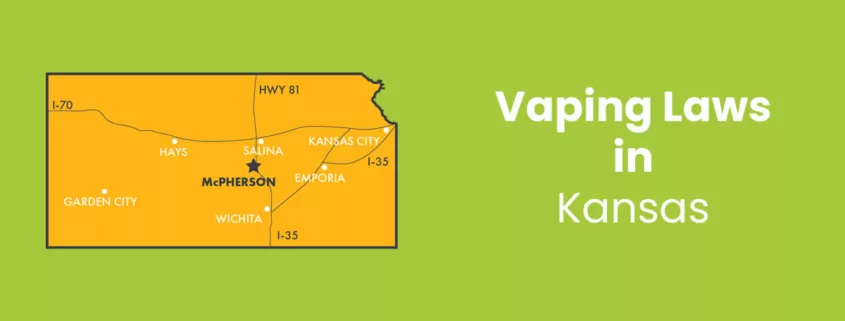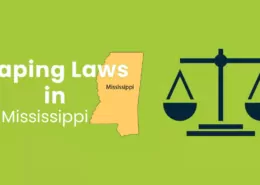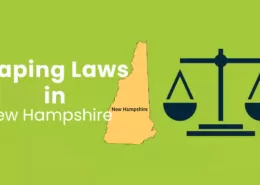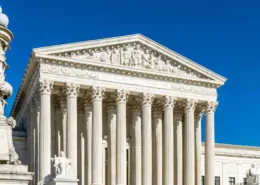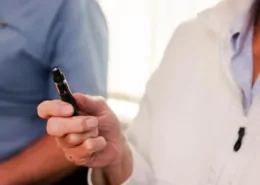Vaping Laws in Kansas: Age, Tax, Public Use & Rules
From the sweeping plains of the west to the bustling cityscapes of the east, Kansas presents a unique regulatory environment for vaping. For consumers, retailers, and manufacturers, understanding this landscape is key. This guide provides an in-depth look at Kansas’s current vaping laws as of mid-2025, detailing the rules on age, sales, taxation, and where you can legally vape, helping you navigate the state’s regulations with clarity.
What Kansas Considers an Electronic Cigarette
Kansas law provides a specific definition to ensure comprehensive regulatory coverage. An “electronic cigarette” is defined as “a battery-powered device, whether or not such device is shaped like a cigarette, that can provide inhaled doses of nicotine by delivering a vaporized solution by means of cartridges or other chemical delivery systems”. This definition encompasses a wide range of vaping devices, including vape pens, pod systems, and box mods, ensuring they fall under the state’s regulatory control.
Is Vaping Legal in Kansas?
Yes, vaping is legal for adults aged 21 and over in Kansas. However, the state has specific laws governing who can buy these products, how they are sold, and where they can be used, with many public use restrictions determined at the local level.
Age Restrictions: Strictly 21 and Over
Kansas rigidly enforces a minimum legal sales age of 21 for all tobacco and vapor products. This “Tobacco 21” standard aligns Kansas with federal legislation enacted in December 2019. Under Kan. Stat. Ann. § 79-3321(l), it is illegal for any person to sell, furnish, or distribute electronic cigarettes or tobacco products to any person under 21 years of age. This prohibition extends to the purchase, possession, or attempt to purchase these products by individuals under 21.
Retailers are legally mandated to verify the age of any purchaser who appears to be under 30 years of age by checking a valid government-issued photographic identification. Penalties for both retailers and underage individuals are significant and enforced by state and local authorities:
- For Retailers (Selling to Minors): Violations are considered a Class B misdemeanor, with minimum fines starting at $200 for a first offense. Store owners can also face administrative penalties from licensing authorities that can exceed $10,000 and may include license suspension or revocation for repeated violations.
- For Individuals Under 21 (Possession/Use): Minors who purchase, possess, or attempt to purchase tobacco or vaping products may face a $25 fine plus court costs for a first offense.
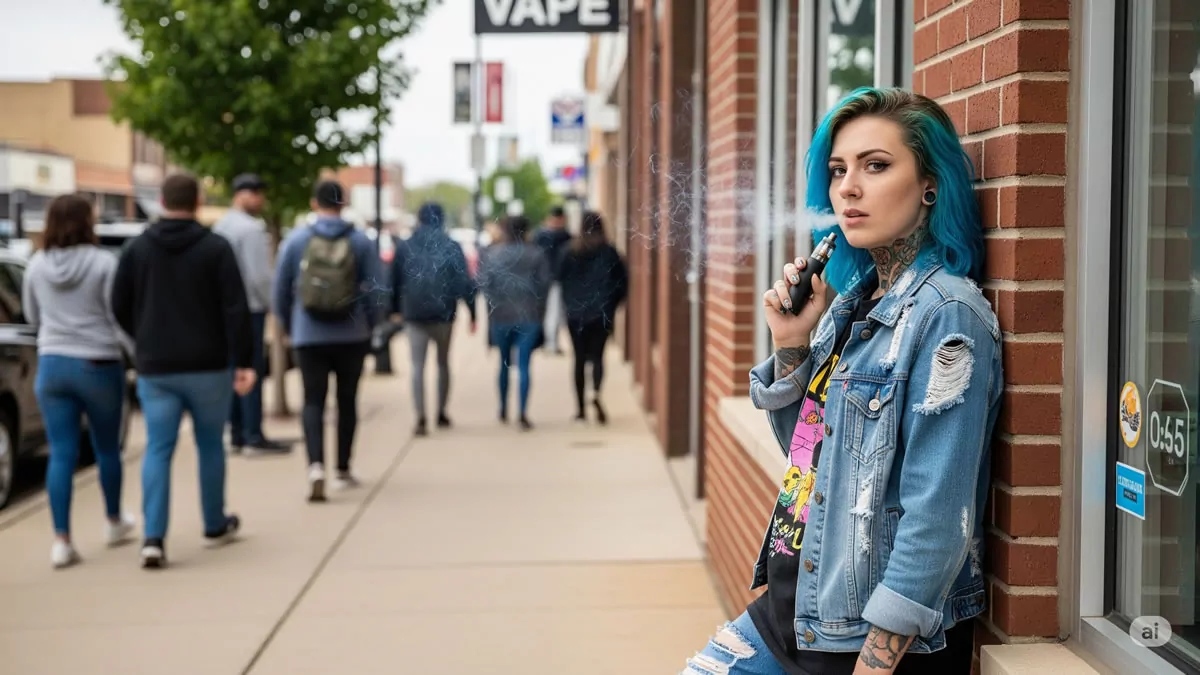
Where Vaping is Prohibited in Kansas?
One of the most important aspects of Kansas’s vaping laws is the difference between statewide rules and local authority.
The Kansas Indoor Clean Air Act and Vaping
Kansas’s statewide Indoor Clean Air Act, which went into effect in 2010 and prohibits smoking in most public places and workplaces, does NOT explicitly include vaping products. This means there is no state law that automatically prohibits vaping in all the same places where smoking is banned, such as restaurants, bars, and private workplaces. In areas without stricter local rules, individual businesses can decide whether to allow or prohibit vaping indoors.
Local Ordinances:
Because the state’s Clean Indoor Air Act does not cover vaping, many local municipalities and counties have passed their own, stricter ordinances. This results in a “patchwork” of regulations across Kansas. Many communities have passed local laws that prohibit vaping wherever smoking is banned. Municipalities with such public vaping restrictions include:
- Kansas City/Wyandotte County
- McPherson
- Olathe
- Overland Park
- Topeka
The takeaway for vapers is to always look for local signage and be aware of specific city or county rules.
Ecigator is one of the well-known vape brands spun off from FM Technology Co., Ltd, it’s an ISO-certified disposable vape manufacturer for OEMs, ODMs, and OBM since 2010. The founder team comes from top firms with more than 10 years of experience in the vaping industry and has devoted thousands of hours to providing users with a better and better experience.
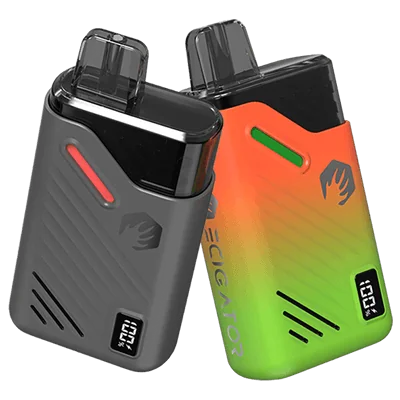
18K Disposable Pod Kit
Disposable Pod Kit – 18ml changeable pod with 650mAh rechargeable battery.
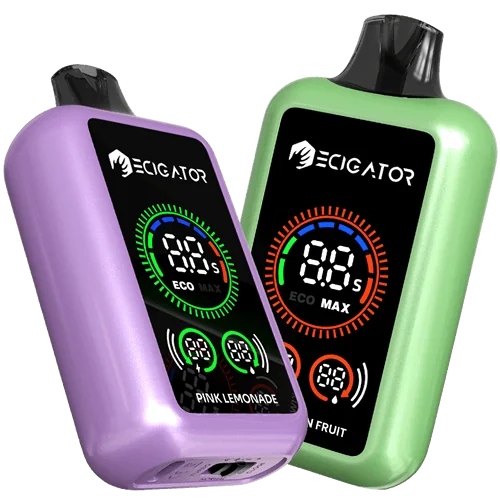
20K with Large Screen
20000 Puffs Disposable Vape with large screen. Normal and Boost working modes.
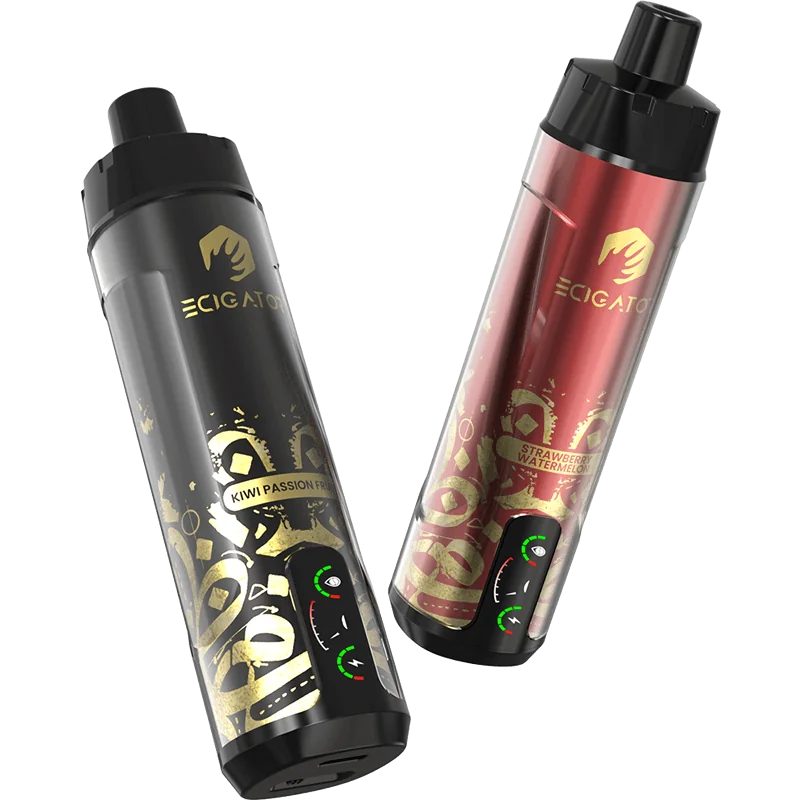
20K DTL Disposable
20K Puffs DTL(Directly to Lung) disposable vape with airflow control and screen.
Selling Vaping Products in Kansas
The sale of vaping products in Kansas is a regulated activity with specific requirements for licensing and sales practices.
Retailer Licensing and Permits
All businesses that sell e-cigarettes or other tobacco products in Kansas must obtain a license from the Kansas Department of Revenue. The licensing structure includes different categories:
- Retail Dealer’s License: $25 for each dealer establishment, renewable every two years.
- Vending Machine Distributor’s License: $50, with a separate permit costing $25 per machine, renewable every two years.
- Wholesale Dealer’s License: $50 for each dealer establishment per biennium (requires a bond).
- Manufacturer’s Salesperson License: $20 for each salesperson.
Sales Practices and Product Requirements
- No Self-Service Displays: Self-service displays of e-cigarettes are prohibited except in tobacco specialty stores or in facilities where no one under 21 is present or permitted to enter.
- Vending Machines: Vending machine sales of e-cigarettes are restricted to locations that are inaccessible to individuals under 21 or that have a lock-out mechanism to prevent underage access.
- Direct Sales Only: Sales must be conducted through direct, face-to-face exchanges between the retailer and the consumer, with limited exceptions for certain mail-order sales and vending machines.
- Required Signage: Retailers must post and maintain a conspicuous notice stating: “By law, cigarettes, electronic cigarettes and tobacco products may be sold only to persons 21 years of age and older”.
Taxation of Vaping Products
Kansas imposes a state excise tax on electronic cigarette consumable material. The tax rate is $0.05 per milliliter of e-liquid. This tax applies to all consumable material for e-cigarettes, regardless of whether it contains nicotine. This rate positions Kansas as having one of the lowest per-milliliter tax rates in the nation, alongside states like Delaware, Georgia, Nebraska, North Carolina, and Wisconsin.
The Status of Flavored Vaping Products in Kansas
As of 2025, Kansas does not have a statewide ban on the sale of flavored vaping products. However, this has been a topic of legislative debate. In 2023, for example, House Bill 2269 was introduced, which included provisions that could have impacted flavored products, but it did not pass in a form that enacted a statewide ban. While there are no state-level flavor prohibitions, federal FDA regulations still apply. The FDA has a policy restricting flavors in pre-filled cartridge-based or pod-based e-cigarette systems (other than tobacco and menthol) unless they have received specific marketing authorization. This federal rule does not apply to open-system e-liquids or most disposable vapes, meaning many flavored products remain legally available in Kansas, subject to local ordinances.

ECIGATOR
Ecigator is one of the well-known vape brands spun off from FM Technology Co., Ltd, it’s an ISO-certified disposable vape manufacturer for OEMs, ODMs, and OBM since 2010. The founder team comes from top firms with more than 10 years of experience in the vaping industry and has devoted thousands of hours to providing users with a better and better experience.
Enforcement
Kansas employs a multi-agency approach to enforcement, involving state agencies and local authorities, to ensure compliance with its vaping regulations.
- State and Federal Compliance Checks: The Kansas Department of Revenue and the Attorney General’s office work to enforce state laws. The state also coordinates with federal authorities, conducting random, unannounced inspections of tobacco outlets as required by federal law for receiving substance abuse block grant funds. The FDA also conducts its own compliance checks using underage purchasers.
- Retailer Penalties: As mentioned, violations can result in Class B misdemeanor charges with minimum fines of $200 for selling to minors. Store owners can also face administrative penalties from licensing authorities that can exceed $10,000 and may include license suspension or revocation.
Conclusion:
Kansas’s vaping laws in 2025 reflect a moderate but evolving regulatory environment. The state maintains a clear 21+ age limit and a specific tax on e-liquids, but its lack of a statewide indoor vaping ban creates a patchwork of rules dependent on local city and county ordinances. For all stakeholders, from consumers to retailers, the key to compliance is understanding this state-versus-local distinction and staying informed about ongoing legislative discussions that could further shape the future of vaping in the Sunflower State.
References
- Kansas Legislature – Kan. Stat. Ann. § 79-3321 (Sale, distribution or furnishing of cigarettes, electronic cigarettes or tobacco products)
- Kansas Legislature – Kan. Stat. Ann. § 79-3303 (Retailer’s license)
- Kansas Department of Revenue – Cigarette, Electronic Cigarette & Tobacco Products
- Kansas Health Institute – E-Cigarette Policy, Regulation, and Marketing (PDF)
- Spain Galicia to Ban All Vape Sales and Use for Minors - July 29, 2025
- Poland to Tax Nicotine Pouches & Other Vape Products from Aug 1 - July 29, 2025
- New Zealand Extends Heated Tobacco Tax Cut to 2027 - July 29, 2025

